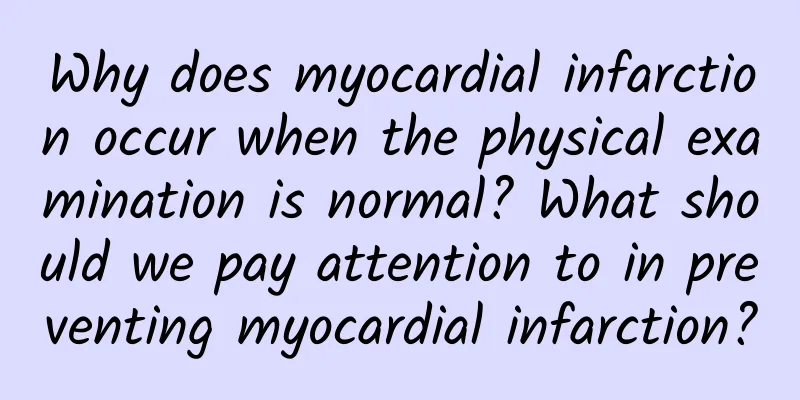Can pregnant women eat persimmons?

|
Women should pay attention to strengthening nutrition during pregnancy. Balanced nutrition is good for the development of the fetus. During pregnancy, they should also pay attention to the fact that some foods are not suitable for pregnant women, such as hawthorn, crab, almonds, etc. Persimmon is a fruit that many people love to eat. It tastes sweet and is easy to digest. Many pregnant women worry that they cannot eat persimmons during pregnancy, fearing that persimmons will affect the development of the fetus. Can pregnant people eat persimmons? Let’s take a look at it next. 1. Can pregnant women eat persimmons? Persimmon is cold in nature and has the effects of clearing heat, moistening the lungs, promoting body fluid, quenching thirst, suppressing cough, and relieving phlegm. It is suitable for the treatment of hypertension, chronic bronchitis, arteriosclerosis, hemorrhoids, bloody stools, and constipation. Its nutritional and medicinal value are suitable for pregnant women to consume in moderation. Especially pregnant women with pregnancy-induced hypertension can "kill two birds with one stone". Therefore, pregnant women can eat persimmons. 2. Benefits of eating persimmons for pregnant women 1. Effectively relieve pregnancy-induced hypertension. Persimmon contains a large amount of vitamins A, C and tannic acid, which has the effects of nourishing the lungs and stomach, clearing away dryness and heat, lowering blood pressure and stopping bleeding, preventing cardiovascular disease, clearing away heat and lubricating the intestines, moistening the lungs and producing body fluids. 2. Relieve constipation in pregnant women. Persimmons are not only nutritious but also have high medical value. The pectin contained in persimmons is a water-soluble dietary fiber which has a good laxative effect. It is very effective in correcting constipation and maintaining normal intestinal flora growth. 3. Precautions for pregnant women to eat persimmons 1. Persimmons have an astringent taste. Eating too many will make your mouth feel astringent and your tongue numb. They have a strong astringent effect and can cause dry stools. It can aggregate into agglomerates when exposed to acid and produce precipitation after combining with protein. Therefore, you should eat persimmons in moderation, one per meal is appropriate. 2. Persimmons and crabs are both cold foods, so they should not be eaten together. Persimmons should also not be eaten with high-protein foods such as fish and shrimp. From the perspective of modern medicine, crabs, fish, and shrimps that contain high protein can easily coagulate into lumps under the action of tannic acid, which are called gastric persimmon stones. 3. Persimmon is a cool fruit. Eating persimmon on an empty stomach can easily cause gastric persimmon stone disease. It is best to eat persimmon one hour after a meal. 4. Pregnant women should try to eat less persimmon peel when eating persimmons. Because most of the tannins in persimmons are concentrated in the skin, it is impossible to remove all the tannins when the persimmons are de-astringent. If the persimmons are eaten with the skin, it is more likely to form gastric persimmon stones, especially when the de-astringency process is not perfect, the skin contains more tannins. 5. Because the sugar content of persimmons is higher than that of ordinary fruits, expectant mothers must control the intake. Pregnant women with diabetes should not eat persimmons. Pregnant women with anemia and low gastric motility such as chronic gastritis and indigestion should not eat persimmons. 6. Pregnant women should not eat more than 200 grams of persimmons. The tannic acid in persimmons can form compounds with calcium, zinc, magnesium, iron and other minerals in food that cannot be absorbed by the human body, making these nutrients unusable. Therefore, eating too many persimmons can easily lead to a deficiency of these minerals. Because persimmons contain more sugar, people will feel fuller after eating persimmons than eating the same amount of apples or pears, which will affect appetite and reduce the intake of regular meals. It is generally believed that if you are not on an empty stomach, it is best not to eat more than 200 grams of persimmons each time. 7. In addition, because persimmons are high in sugar and pectin, some of them will always remain in the mouth after eating persimmons, especially in the gaps between teeth. Coupled with the weakly acidic tannic acid, it is easy to erode the teeth and form caries. Therefore, it is advisable to drink a few sips of water or rinse your mouth in time after eating persimmons. 3. Notes After being dried, persimmons become "persimmon cakes", which taste sweeter and have the effects of promoting salivation and quenching thirst, resolving phlegm and relieving cough, and clearing heat from the lungs. Expectant mothers who often suffer from mouth ulcers should especially not miss it. |
<<: What anti-inflammatory medicine should I take for vaginal bleeding?
>>: Why do women have chest pain and swelling?
Recommend
What happens if you take birth control pills after you get pregnant?
In modern life, many girls may take contraceptive...
Symptoms of irregular menstruation, good effect of TCM treatment
I believe that for female friends, they will feel...
Will I still ovulate after fertilization?
After the sperm and egg combine, a fertilized egg...
Accessory Breast Removal Surgery
Some women find that their accessory breasts are ...
What is the relationship between elite lawyer Liao Jiamin and Feng Yin? Do Liao Jiamin and Feng Yin end up together?
Recently, the Elite Lawyer starring Jin Dong, Lan...
What to do if you have breast discharge
Breast disease is the most common disease among w...
Vaginitis incidence
In recent years, the incidence of vaginitis is re...
Pink vaginal discharge before menstruation
Menstruation is something that non-pregnant women...
Girls have pain for no reason
Women will not experience pain down there for no ...
Can I eat beef tripe during menstruation?
Menstruation is unique to women, meaning it occur...
Can I eat eggplant after miscarriage?
Miscarriage in women seems to be a very common ev...
A man ate 12 pills a day and had half of his stomach removed! Doctors urgently stopped him
When the weather is warm and cold in spring, vari...
2023 Nobel Prize in Physiology or Medicine announced, related to COVID-19 vaccine
On October 2, at 11:45 CET (17:45 BJT), the Nobel...
How to use female condoms
In order to prevent unwanted pregnancy, there are...
Can hydrosalpinx be cured?
In recent years, as people's life pressure ha...









